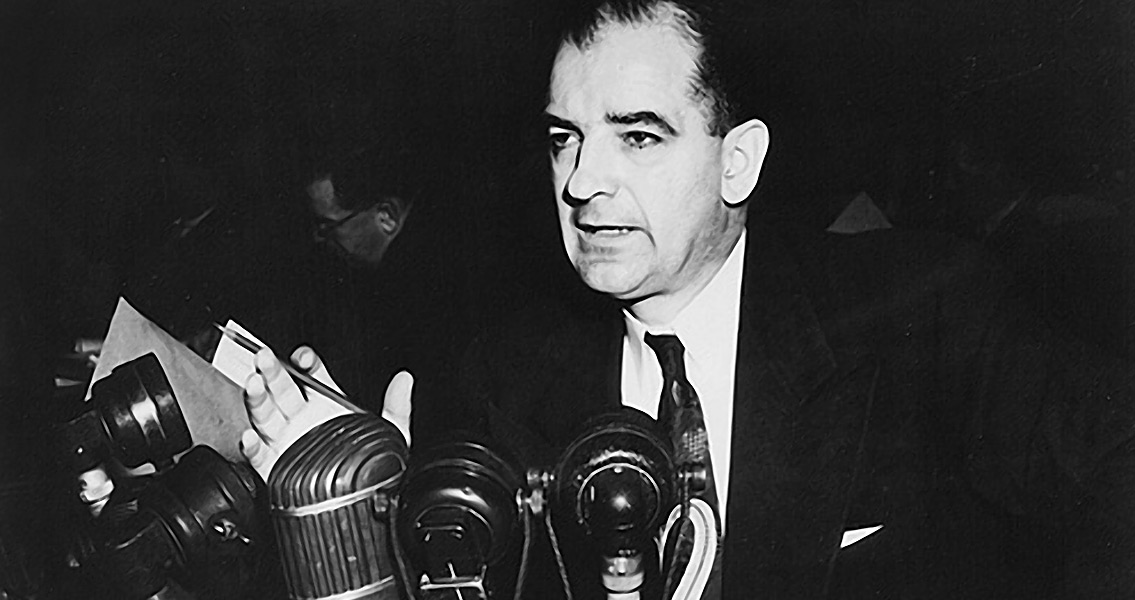<![CDATA[On 26th March, 1950, a radio show in the United States leaked the news that Owen Lattimore had been charged with being a spy for the Soviet Union. The accusations against Lattimore were one of the most public events in the hysteria surrounding Senator Joseph McCarthy's claim that communists in the Department of State were selling secrets to the USSR. Although Lattimore was ultimately cleared of the charges against him, his career was permanently damaged, forcing him to leave the United States to work in Great Britain. Lattimore, a lecturer at John Hopkins University, was a respected authority on the history, culture and politics of East Asia. During the Second World War he had served in the government of President Franklin D. Roosevelt, initially working as a special representative to the Nationalist Chinese government of Chiang Kai-Shek, before being employed in the Office of War Information. The defeat of Chiang Kai-Shek's government to Mao Zedong's communists in 1949 had a substantial impact for Lattimore, setting about the process which would result in McCarthy's accusations against him. The triumph of Communism in China was a diplomatic disaster for the United States, one which some Americans felt could have been avoided. Lattimore had long made public his criticism of Chiang Kai-Shek's government, particularly concerning its failure to support democracy. During China's Civil War the US government withheld aid from the Kai-Shek's government, with the condition that it would only have started assistance if a Nationalist-Communist coalition had been formed. For many in the United States the decision to withhold aid was considered a key reason for Zedong's success, and Lattimore became an easy scapegoat for the rise of Communism in China. In February 1950, McCarthy had delivered a speech in Wheeling, West Virginia, where he claimed to have the names of 205 known communists who were "working and shaping policy in the State Department". By March 1950 he was under pressure to provide names of those supposed Communists, and Lattimore's involvement in Chinese affairs and previous support of Mao made him an easy target. In March, McCarthy declared that Lattimore was "the top Soviet espionage agent in the United States." A Senate Foreign Relations Committee looked into the charges brought against Lattimore, charges he had immediately denied, and concluded that they had no basis. Lattimore was therefore completely exonerated in July 1950. Two years later, Lattimore was indicted on charges of perjury, relating to inaccuracies in a testimony he had provided to the 'Senate Internal Security subcommittee investigating the Institute of Pacific Relations'. The Institute of Pacific Relations, which Lattimore had directed during the Second World War, had been accused of communist sympathies several times during its history. The Senate Subcommittee had been tasked with investigating it following pressure from McCarthy. Although Lattimore admitted to some inconsistencies in his testimony, a Federal Judge dismissed the indictments in 1955, claiming they would have made a "sham of the Sixth Amendment". With hindsight, we know that no evidence ever surfaced to support McCarthy's accusations against 'supposed' communists. A quick look at his personal history also reveals that the 'Communist Witch hunt' was not the first time he had used dirty politics and demagoguery in an attempt to further his own political career. Nevertheless, just a quick internet search reveals that there are still many who believe that the charges against Lattimore in fact had some basis, revealing the complex factors which need to be considered when reevaluating the McCarthy era. It is impossible for us who did not live through it to empathise with the uneasy atmosphere of Cold War America. On the anniversary of the charges being brought against Lattimore, however, we can get a sense of the relentless paranoia and accusations which divided the USA during McCarthyism. ]]>
Owen Lattimore Charged By McCarthy
